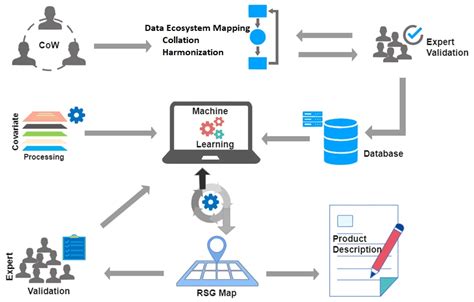In today’s fast-paced and ever-evolving job market, Continuing Education Units (CEUs) are essential for professionals seeking to advance their careers and remain competitive. Whether you’re striving to enhance your skill set, maintain licensure, or explore new opportunities, CEUs offer a structured way to stay updated and relevant in your field. This article will explore the critical role CEUs play in career advancement and professional development, providing insights into selecting the right programs, balancing ongoing education with work-life demands, and leveraging new knowledge to maximize growth. Start your journey toward long-term success by embracing lifelong learning with CEUs as your guide.
Join gameshoek.com as we uncover the details of this topic.
1. Importance of CEUs for Career Advancement
In an increasingly competitive workforce, Continuing Education Units (CEUs) serve as a valuable tool for career advancement. They not only help professionals stay current with industry trends but also demonstrate a commitment to ongoing learning and development, which can significantly enhance one’s professional standing. Employers often value employees who actively pursue CEUs, seeing it as a signal of dedication to improving their skills and staying adaptable to changes within their field.
For many professions, particularly those requiring licensure or certification, CEUs are a mandatory part of maintaining qualifications. However, beyond just fulfilling requirements, CEUs provide an opportunity to gain deeper knowledge in specialized areas, opening doors to promotions, leadership roles, or even career changes.
The importance of CEUs goes beyond job retention—they are a catalyst for growth, enabling professionals to stay ahead of the curve in their respective industries. By continually updating their skill set, individuals increase their marketability and ensure they remain competitive in the ever-evolving job market. Whether it’s learning the latest technological advancements, refining existing skills, or branching into new areas, CEUs empower professionals to take control of their career trajectory, positioning themselves as leaders and experts in their fields. Ultimately, investing in CEUs is an investment in long-term career success.

2. Selecting the Right CEU Programs
Choosing the right CEU programs is crucial for maximizing their impact on your career. With countless options available across various industries, it’s essential to select programs that align with your professional goals and areas of expertise. Start by identifying the skills or certifications that are most valued in your field. Focus on CEU programs that offer practical, industry-relevant content designed to fill gaps in your current knowledge or expand your competencies into emerging trends.
It’s also important to evaluate the credibility of the provider. Look for programs that are accredited or recognized by reputable industry associations, ensuring that the CEUs earned will be accepted by your employer or certification board. Additionally, consider the format and time commitment required—whether it’s online, in-person, or a hybrid model—and how well it fits into your current work-life balance.
By carefully selecting CEU programs tailored to your career objectives, you’ll not only enhance your skills but also position yourself for meaningful advancements and new opportunities in your professional journey.

4. Leveraging CEUs for Networking Opportunities
CEUs not only offer professional development but also provide valuable networking opportunities. Participating in CEU programs, whether in-person or online, connects you with other professionals who share similar interests and career goals. These connections can lead to mentorship opportunities, collaborations, and even career advancement through referrals or recommendations.
When attending CEU workshops, seminars, or conferences, take the initiative to engage with fellow participants and instructors. Join discussions, ask questions, and share your experiences—this opens the door to meaningful conversations that can extend beyond the classroom. Even in online CEU courses, there are often forums or group projects that allow you to interact with peers, creating a virtual network that can be just as impactful as in-person interactions.
Leveraging these networking opportunities helps you stay informed about industry trends and developments, exchange best practices, and build a support system of like-minded professionals. These connections can become an invaluable resource as you progress in your career, offering insights and guidance as you apply your CEU knowledge to real-world challenges. By actively networking through CEUs, you’re not only enhancing your skillset but also expanding your professional circle and opportunities.
5. Applying CEU Knowledge to Real-World Scenarios
The true value of CEUs lies in the ability to apply newly acquired knowledge to real-world situations. Once you complete a CEU program, the next step is to put your skills into action in your workplace or professional projects. Consider how the concepts, techniques, and best practices you’ve learned can enhance your daily responsibilities. Whether it’s improving workflow efficiency, implementing new technology, or offering innovative solutions to common problems, CEUs should empower you to make tangible improvements in your work.
Start by identifying specific challenges within your role or industry and use your CEU education to address them. Share your insights with colleagues or supervisors, demonstrating your ability to translate learning into practical results. This not only helps reinforce your new skills but also showcases your initiative and commitment to growth.
Additionally, applying CEU knowledge often leads to new opportunities, such as being entrusted with more complex tasks or taking on leadership roles. By consistently integrating CEU learnings into your professional life, you position yourself as a valuable asset to your organization, capable of driving progress and staying ahead in your field.
6. Planning for Long-Term Learning with CEUs
Planning for long-term learning with CEUs is an essential strategy for sustained career growth. Instead of approaching CEUs as a one-time requirement, treat them as part of your ongoing professional development plan. Begin by setting clear, long-term goals that align with your career aspirations. These could include mastering new technologies, gaining advanced certifications, or transitioning into leadership positions.
Once your goals are established, map out a timeline for completing relevant CEU courses. Consider how each program fits into your broader career trajectory, and identify which skills will be most beneficial at different stages of your journey. Continuously assess industry trends and emerging technologies to ensure that your CEU plan remains relevant.
Additionally, stay flexible in your learning approach. As you advance in your career, your learning needs may shift, and you may discover new areas of interest. By maintaining a proactive and adaptive attitude toward continuing education, you’ll be better equipped to stay competitive in the job market and seize new opportunities as they arise.
Incorporating CEUs into a long-term learning plan helps ensure that you remain a lifelong learner, ready to adapt to changes and drive your career forward.
Embracing CEUs as a key component of your professional development can significantly enhance your career growth and adaptability. By selecting relevant programs, balancing your learning with work and life, and applying your new skills effectively, you set yourself up for long-term success and continuous improvement in your field.
gameshoek.com
